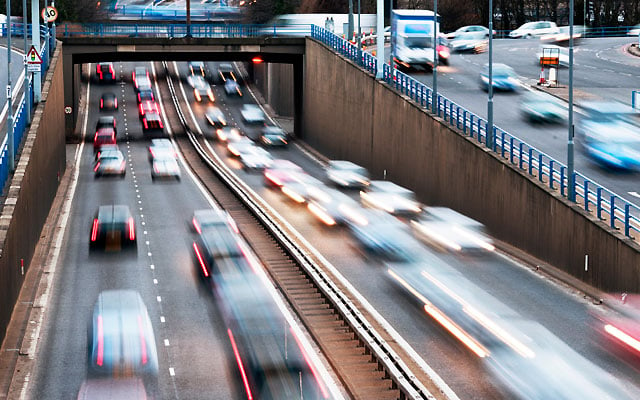25 January 2019
There was a big debate on BBC Radio 5 Live this morning about zip merging.
What do you do in the situation where road works ahead are closing one lane? Most traffic moves over early to queue in the lane that continues past the roadworks but do you:
- Join the queue yourself, even moving closer to the back bumper of the vehicle in front as you reach the roadworks to block any 'queue jumpers' who've had the gall to use the emptier lane
- Stay in the closed off lane as late as you can in the hope that other vehicles will let you 'merge in turn' at the point where two lanes become one
- Or maybe you're the self-appointed traffic police, sitting astride the white lane given vehicles behind no option but to queue behind you?

What does the Highway Code say?
The Highway Code could perhaps be a little clearer on the issue but it does at least give some guidance. Rule 134 of the Highway Code says: "In congested road conditions do not change lanes unnecessarily. Merging in turn is recommended but only if safe and appropriate when vehicles are travelling at a very low speed, e.g. when approaching road works or a road traffic incident. It is not recommended at high speed."
So what you should do depends on the circumstances, in particular how fast the traffic's moving. What would certainly help is the use of more ‘Merge in Turn’ signs.
Slow, stop-start traffic
Where traffic is queuing and moving slowly you should use all available road space in both lanes with drivers at the front of the queues taking it in turns to 'merge in turn' or 'zip merge' as the Americans call it. This can help reduce the overall length of the queue significantly and minimises the risk of disruption at junctions further back up the road.
Faster, free flowing traffic
If on the other hand you're on a motorway or fast dual carriageway in freeflowing traffic and road signs indicate that your lane is closed up ahead then it's best, and safest to move over early when you've got time to pick a safe gap in the adjacent lane rather than wait until the last second when the line of cones gives you no choice but to move across, possibly forcing other vehicles around you to brake to make space.
The problem seems to be the British obsession with queuing. Even unprompted we'll form an orderly queue and wait patiently in line, considering anyone who doesn't to somehow be cheating.
But next time you find yourself in slow-moving traffic approaching road works or an incident that's blocking one lane, try to resist your deep-seated urge to queue early, use all available lanes and merge in turn when you reach the lane closure.
Also, do let in drivers who need to merge. The'll probably thank you for it and leave you in a slightly better mood.
